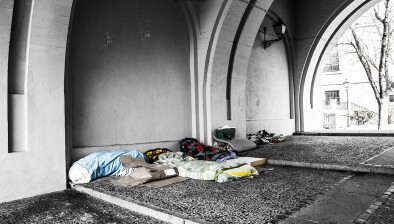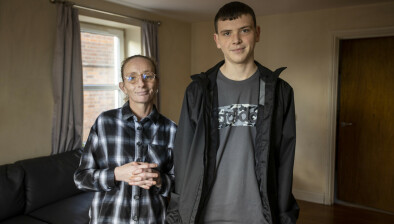New Carnegie research highlights wide gaps in quality of life across Scottish society

Wide gaps in quality of life between different groups in Scottish society have been revealed in new research from Carnegie UK and Ipsos.
Disabled people, people on lower incomes, those living in social housing or private rented accommodation, and younger people have lower levels of wellbeing according to the study. While similar trends are found across the UK, the Dunfermline-based foundation argues for new Scottish Parliament legislation to tackle the problem and to improve public policy development and delivery.
Carnegie’s new Life in the UK Index measures the wellbeing of the people of the UK by examining answers to questions across social, environmental, economic, and democratic themes. The research is based on a survey of 6941 people from across the UK, including 1132 from Scotland.
Sarah Davidson, chief executive of Carnegie UK, said: “Our research paints a picture of an unequal Scotland. While this pattern is seen across the UK, that makes the situation no more acceptable and action to address this problem no less crucial.
“We recognise that many of these inequalities are deep-rooted, but that can’t be a barrier to action. We need policy to focus on helping those in need today, as well as a long-term commitment to ensuring everyone has what they need to live well in the future.”
In a similar pattern to the rest of the UK, the research reveals a lack of trust in political systems and institutions. Almost four fifths (79%) of respondents in Scotland feel that they have no influence over UK Government decision-makers; three fifths (60%) feel the same about the Scottish Government; while half of respondents (51%) feel they have no influence over local decision-makers.
The research found that rising costs were having a big impact on wellbeing both in Scotland and across the UK. Nearly a fifth (19%) of people in Scotland reported difficulties heating their home, in line with the UK average (17%).
Concerningly, 6% of people in Scotland surveyed reported that they could not feed everyone in their household – in line with the UK average (also 6%).
In relation to climate change, the research found that almost half of the public (46%) in Scotland were dissatisfied with efforts to preserve the environment.
Sarah Davidson said: “Most people in Scotland feel that they have no influence over key government decision-makers. That’s perhaps of little surprise when the research shows so many people struggling to make ends meet or concerned about efforts to help the planet.
“That’s why we want to see all spheres of government do more to involve people in their decision-making through initiatives like citizen juries. By including more of our citizens in debating and understanding the choices that need to be made, we will get better policy and higher levels of confidence in our political institutions.”
Carnegie UK is supportive of Sarah Boyack MSP’s proposed Wellbeing and Sustainable Development members’ bill. These proposals are similar to the legislation passed in Wales that created their Future Generations Commissioner.
Sarah Davidson added: “We’re right behind new Scottish Parliament wellbeing legislation to introduce more long-termism and co-ordination to our efforts to tackle the biggest challenges of our time. A new Future Generations Commissioner for Scotland would provide a vital counterbalance to the short-term dynamic created by our political cycle.
“The Scottish Government has emphasised its commitment to a wellbeing approach in public policy. Now is the time for decision-makers at Holyrood to turn warm words into concrete action by strengthening their approach.”







